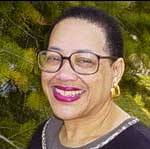 For the second consecutive month, one of the nation's largest banks has agreed to a multi-million dollar settlement of mortgage discrimination complaints. According to the U.S. Department of Justice (DOJ), Wells Fargo Bank will pay more than $175 million to resolve unfair lending claims against African-American and Latino mortgage borrowers from 2004 through 2009. It is the second largest fair lending settlement in the department's history.
For the second consecutive month, one of the nation's largest banks has agreed to a multi-million dollar settlement of mortgage discrimination complaints. According to the U.S. Department of Justice (DOJ), Wells Fargo Bank will pay more than $175 million to resolve unfair lending claims against African-American and Latino mortgage borrowers from 2004 through 2009. It is the second largest fair lending settlement in the department's history.
According to DOJ, $125 million of these monies will go to borrowers of color who were charged more for loans they got through mortgage brokers. Four thousand borrowers will be compensated for being steered into subprime loans with higher rates and fees, instead of receiving prime loans for which they qualified. An additional 30,000 borrowers will be compensated for higher costs they paid on their broker-originated loans versus other consumers. DOJ is now investigating similar concerns with consumers whose 'retail' mortgages were originated by Wells Fargo loan officers during the affected years.
The remaining $50 million from the settlement will be used for down payment assistance in hard-hit communities across the country where DOJ identified large numbers of discrimination victims. These markets include Chicago-Naperville-Joliet, Cleveland, New York-New Jersey, Philadelphia, San Francisco-Oakland-Fremont and Washington, DC.
Commenting on the action, Deputy Attorney General James M. Cole said, "The department's action makes it clear that we will hold financial institutions accountable, including some of the nation's largest, for lending discrimination. An applicant's creditworthiness, and not the color of his or her skin, should determine what loans a borrower qualifies for."
By its own accounts, Wells Fargo has $1.3 trillion in assets, and serves one in three households in America through its 9,000 locations, 12,000 ATMs and 270,000 team members.
DOJ's investigation into Wells Fargo's lending practices began in 2009. A parallel investigation by the Office of the Comptroller of the Currency (OCC) examined lending practices in the metro areas of Baltimore and Washington DC. OCC found that there was reason to believe that Wells Fargo engaged in a pattern of discrimination in violation of federal laws.
The DOJ investigation determined that Wells Fargo knowingly allowed its loan officers and mortgage brokers to subjectively vary interest rates and fees. The investigation showed that Wells Fargo systematically used these exceptions to over-charge Black and Latino borrowers while white borrowers with similar credit profiles paid less.
For example, in 2007 a Latino borrower in the Miami area seeking a $300,000 mortgage paid on average $2,538 more than a similarly qualified white applicant. An African-American borrower at the same time in Miami would be charged an even higher "racial surtax" of $3,657.
Last month and in a separate action, Wells Fargo reached a settlement also involving lending discrimination with the City of Memphis and Shelby County, TN. In that action, both the city and county governments received a $7.5 million settlement; but no borrowers were compensated.
About the same time last month, DOJ reached a $21 million settlement of alleged discriminatory actions by SunTrust Bank. And lest anyone think these lending practices are isolated cases, consider the Bank of America settlement following its acquisition of Countrywide, or the smaller banks that settled discriminatory lending cases in Detroit and St. Louis.
It is the persistence of these problems that causes the greatest concern. Decades after enacting multiple anti-discriminatory protections, people of color still cannot be confident that "fair lending" applies to all borrowers. While it is commendable that the DOJ and other enforcement bodies have vigorously pursued these recent cases, it remains deeply troubling that systematic discrimination still survives in the marketplace. For the people and communities affected, the shared consequences are severe. Even with some monetary relief, full financial recovery will not be easy.
As Assistant Attorney General Tom Perez, who leads the civil rights division, has said,
"This is a case about real people, African-American and Latino, who suffered real harm as a result of Wells Fargo's discriminatory lending practices."
Borrowers who believe they may have been victims of discriminatory lending by Wells Fargo are advised to contact DOJ at: [email protected].
Charlene Crowell is a communications manager with the Center for Responsible Lending.
- Home
- News
- Opinion
- Entertainment
- Classified
- About Us
 MLK Breakfast
MLK Breakfast- Community
- Foundation
- Obituaries
- Donate
11-22-2024 4:14 am • PDX and SEA Weather














































































































































































































































































































